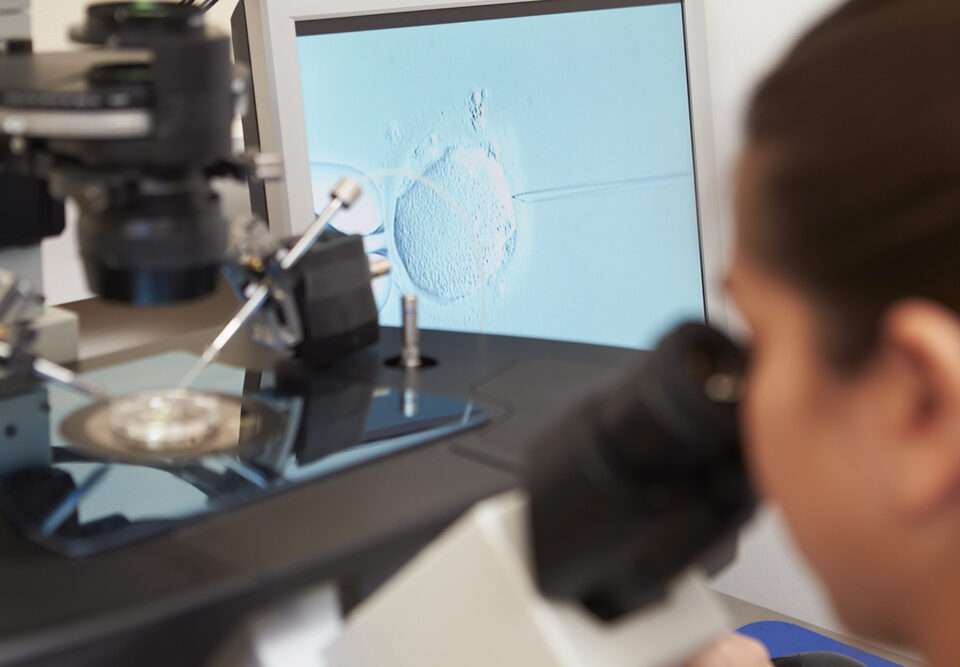Veterans Fertility Bill Withdrawn
August 13, 2015Egg Donation: Should it be a secret?
September 3, 2015Recently, legal cases regarding frozen embryos have garnered media attention. Those wrangled into lawsuits never thought they’d be in this situation. In fact, it was the furthest thing from anyone’s mind during those initial visits at the fertility clinic. At the time, all they wanted was a baby.
But the legal landscape is changing.
Someone who desperately wants a child doesn’t think about a divorce, a surplus of frozen embryos, and the “what if” scenarios. People are in the “here and now” and want to build a family.
It’s that simple.
What isn’t simple, however, is looking past the “here and now” and to an unused inventory of frozen embryos.
In Jennifer Ludden’s article, “A Divorce, What Happens To A Couple’s Frozen Embryos?” she takes readers through many considerations. At the start of the article, she highlights the Dr. Mimi Lee and Stephen Findley case – a legal battle many have been following closely.
For those unaware of this case, the brief recap is that shortly after the couple was married, Dr. Lee was diagnosed with breast cancer. Knowing her treatments would render her infertile, she underwent egg retrieval and with Findley’s sperm donation, embryos were created.
The couple is now divorced. And Dr. Lee wants to start a family with these embryos and Findley does not.
While a consent form at the clinic indicated that the embryos would be destroyed in the event of a divorce, Dr. Lee and her attorney are fighting back. A consent form does not have the same weight as a legal document.
“Those embryos are at the heart of a court case that will soon decide a very modern problem: Which member of a divorced couple gets control of their frozen embryos?” writes Ludden.
The reporter then leaned on law professor Judith Daar of Whittier Law School. According to Daar, while the consent form may help, it’s not a guaranteed judgment, especially in this case.
And Daar is absolutely on point with this.
While the ruling in this case should come down fairly soon, either way, it’s sure to be appealed. If you look at the history of the cases, the only time the court has allowed one side to use the embryos to achieve a pregnancy is like the Karla Dunston case.
Just last month, the Illinois appellate court ruled in favor of the Chicago woman who is in cancer remission. Attorneys and legal analysts describe the case as a landmark ruling over the custody of frozen embryos
The Dr. Lee legal battle mirrors the Dunston case.
For Dunston, it was her only chance to have a genetic child, and these embryos were specifically created with that in mind before cancer treatments.
In both cases, these women underwent fertility treatments and an egg retrieval procedure prior to cancer treatments which would trigger infertility.
Like Dunston, Dr. Lee has a gripping plea to the judge.
Her attorney, Peter Skinner has said, “My client at this point in time is 46 years old, and just simply as a matter of her age she is virtually infertile.” He added, “She really doesn’t have any other realistic option to have a biologically related child, other than to use the embryos that she created for that very purpose.”
Daar then offered another resolution claiming that technology caused this challenge and will more than likely provide the answers. She stated that future considerations may be for a couple to freeze unfertilized eggs and sperm which can be stored in a cryobank.
“And if they break up, he can have his sperm, she can have her eggs, and they can dispute other matters in the relationship.”
That’s an interesting solution and there’s more to come, for certain. But in the meantime, it cannot be stressed enough that a consent form at a fertility clinic may not be binding enough – legal documentation may need to take precedence.



